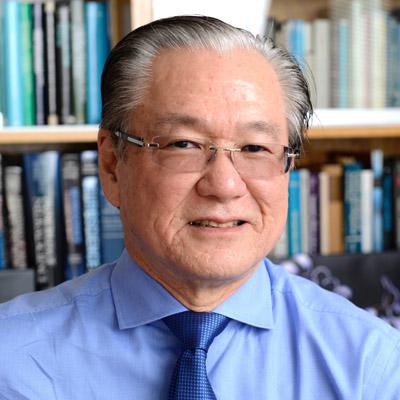
Circadian Clock Genes and the Importance of Timing in Aging and Logevity
Description
In progress
Speaker Bio
Joseph S. Takahashi, Ph.D.
Department of Neuroscience
Howard Hughes Medical Institute
University of Texas Southwestern Medical Center
5323 Harry Hines Blvd., NA4.118
Dallas, TX 75390-9111
214-648-1876 (admin)
joseph.takahashi@utsouthwestern.edu
Joseph S. Takahashi is the Loyd B. Sands Distinguished Chair in Neuroscience, an Investigator of the Howard Hughes Medical Institute, and Chair of the Department of Neuroscience at the University of Texas Southwestern Medical Center in Dallas. Before moving to UT Southwestern,
Takahashi was the Walter and Mary Elizabeth Glass Professor in the Life Sciences at Northwestern University. During his 26-year tenure at Northwestern, he held appointments as professor in the Department of Neurobiology on the Evanston campus and the director of the Center for Functional Genomics. Takahashi received a B.A. in biology from Swarthmore College in 1974 and a Ph.D. in neuroscience from the University of Oregon, Eugene, in 1981. For postdoctoral training, he was a pharmacology research associate at the National Institute of Mental Health.
His research interests are the molecular mechanism of circadian clocks, neuroscience, and the genetic basis of behavior. Dr. Takahashi pioneered the use of genetics in the mouse as a tool for discovery of genes underlying neurobiology and behavior, and his discovery of the mouse and human Clock genes led to a description of a conserved circadian clock mechanism in animals. He is the author of more than 300 scientific publications and the recipient of many awards including the Honma International Prize in Biological Rhythms Research in 1986, W. Alden Spencer Award in Neuroscience from Columbia University in 2001, Eduard Buchner Prize from German Society for Biochemistry and Molecular Biology in 2003, Outstanding Scientific Achievement Award from the Sleep Research Society in 2012, and the Gruber Neuroscience Prize from the Gruber Foundation in 2019 (a major award in the field of neuroscience). In 2014 and 2019, he was selected as a Thomson Reuters Highly Cited Researcher in Biology and Biochemistry. He was elected a Fellow of the American Academy of Arts and Sciences in 2000, a Member of the National Academy of Sciences in 2003, and a Member of the National Academy of Medicine in 2014.
Takahashi has served on a number of advisory committees for the National Institutes of Health, as well as scientific advisory boards for Eli Lilly and Company, the Genomics Research Institute for the Novartis Foundation, The Klingenstein Fund, the Searle Scholars Foundation, the McKnight Foundation, the Allen Institute for Brain Science, the Max Planck Institute for Biophysical Chemistry, the Bristol-Myers Squibb Neuroscience Award Selection Committee, INSPIRE Servier International, and the Restless Legs Syndrome Foundation. He is/was a member of the editorial boards for PNAS, eLife, PLoS Genetics, Neuron, Curr Opin Neurobiol, Physiological Genomics, J. Biol. Rhythms, Genes Brain Behav, and the Faculty of 1000. He was also a co-founder of Hypnion, Inc., a biotech discovery company in Worcester, Mass., that investigated sleep/wake neurobiology and pharmaceuticals (now owned by Eli Lilly and Co.), and was a co-founder of Reset Therapeutics, Inc., a biotech company that works on the role of clocks in metabolism, now known as Synchronicity Pharma.

